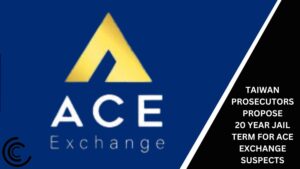Key takeaways:
- Georgia and Tether have agreed to work together to build out the peer-to-peer and Bitcoin infrastructure in that nation.
- Tether wants to make Georgia an appealing destination for blockchain investment and Web3 businesses.
The government of Georgia and stablecoin issuer Tether have agreed to work together to build out the peer-to-peer (P2P) and Bitcoin infrastructure in that nation. Building essential infrastructure for a healthy startup ecosystem in Georgia is the primary goal of the strategic partnership between Tether and the Georgian government.
Tether’s CTO, Paolo Ardoino, stated that the company wants to foster a positive environment for using peer-to-peer technologies. He also stated:
“This collaboration not only marks a significant milestone for Tether but also reinforces its position as a pioneering infrastructure partner for cities and nations globally.”
The joint initiative intends to draw attention and funding from around the world to the emerging decentralized space. The collaboration intends to support the development of P2P technology at the state level and assist in creating financial instruments around it. Education on Bitcoin and blockchain technology, the design of payment infrastructure for businesses, and the creation of a robust, open, and private P2P communication system are some important development areas.
Tether stated that collaborating with the Georgian government would also consider developing and implementing a robust, independent banking and communication system. To do this, it is necessary to promote the adoption of P2P technology-based digital payment and communication systems. Additionally, the current infrastructure must be improved to ensure its reliability and resilience in supporting blockchain-based solutions. The partnership aims to reform both the commercial sector and public administration.
To advance blockchain technology and promote itself as a nation with a favorable startup culture, Georgia will establish a special fund for local businesses. The coordinated effort, according to Irakli Nadareishvili, Deputy Minister of Economy and Sustainable Development:
“will contribute to the development of local blockchain technologies in the country, as well as the introduction of companies operating in this sector in Georgia.”
The joint venture in Georgia is not the first for Tether. Many cryptocurrency businesses have collaborated extensively with governments over the years to improve emerging technology. Collaborations typically result in governments having a greater grasp of the technology, which eventually results in favorable regulation.
The first nation to recognize Bitcoin as legal cash was El Salvador, which chose Bitfinex as its primary partner in exchange technology and gave the exchange the nation’s first digital asset license. Similarly, Binance, a cryptocurrency exchange, inked an MoU with Kazakhstan in May 2022 and gained government compliance approval a year later.











